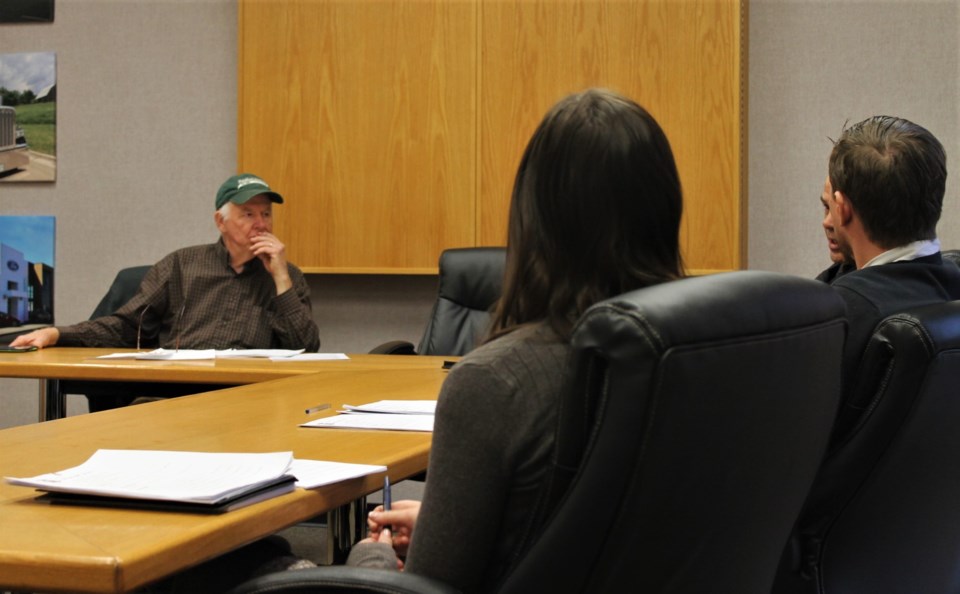Don Mitchell, acting chair of the Housing Advisory Committee, expressed his concern for the future of low-income housing initiatives in Moose Jaw once his committee is disbanded at the end of December.
At the committee’s most recent meeting, Mitchell asked for clarity regarding the City of Moose Jaw’s decision to discontinue the Housing Advisory Committee in a committee re-evaluation policy put forward during the city council meeting on Oct. 28.
City council members voted unanimously to discontinue this committee in the 2020 term, citing inactivity regarding citizenship applications to sit on the board and continued lack of quorum at meetings as the main reason.
Although the Housing Advisory Committee hasn’t held a meeting since June 13, 2018, Mitchell questioned the blanket statement that there has been an “inactivity” from citizens.
He shared that his application as a citizen-at-large board member in 2018 was submitted in November and not accepted until the following August.
Eric Bjorge, representative from the city’s Planning Department, also accepted some ownership for the committee’s long period of activity on behalf of the Planning Department, which had no new or pressing initiative changes to present to the committee that would prompt a meeting.
The future has some worried
The committee’s main concern now is the future of housing initiatives and the process of planning and creating policy. With the Housing Advisory Committee’s dissolution, the Planning Department will take over the responsibilities of housing initiatives in the municipality.
Myron Gulka-Tiechko, city clerk and solicitor, noted that the Housing Advisory Committee was originally created in 2010 to address a critical need regarding low-income housing and vacancy rates.
By consulting current vacancy rates and the results of public online surveys, the city felt that the need is less critical now than previously assessed.
However, Jim Cannon, representative of the Moose Jaw Housing Authority and committee member, noted that vacancy rates may not accurately reflect the true reality of housing needs.
“(A high vacancy rate) doesn't mean that Moose Jaw has all the housing that it needs or that we're targeting the right people,” said Cannon in the meeting. “I do think (municipal government) needs to be involved and have a committee in place so that they're looking at the whole picture.”
Anne-Marie Ursan, who works with municipal housing initiatives in her role with the Thunder Creek Rehabilitation Association, also expressed concern regarding the future of housing initiatives.
“Without safe housing, all other kinds of consequences can happen in a community,” said Ursan. “I think this is a priority that needs to be addressed in a forthright and robust way, . . . (because) people don't fail people, it's systems that fail people, and we would just like to see a system that works.”
In place of the soon-dissolved committees, the new committee policy included the ability to implement ad hoc committees, which can be temporarily created to advise on a current issue and then disband once work is completed.
Mitchell’s concern with this solution is the lack of continued, structured input from a public representative familiar with policy, and is urging city council to consider a different structure, one that features more collaboration with community partners.
He cited the municipal and community collaborations in Regina, Saskatoon, and Prince Albert as examples of successful structures that regularly involve community partners from the public, non-profit organizations, and private sectors.
“I hope and assume that the community partners in housing initiatives will continue to be a part of the discussion and make themselves available in some new structure and process,” said Mitchell.
He also emphasized the need for the community’s efforts on the issue, to ensure effective input is heard.
“There's other ways of drawing in the community in partnership, we just have to make sure that happens,” said Mitchell.
Mitchell put forth a motion from the committee to “urge City Council to develop structure, process, planning, and policy which includes community partners in future housing projects and initiatives,” in hopes of opening a discussion with Council at the next executive meeting on Dec. 9.




